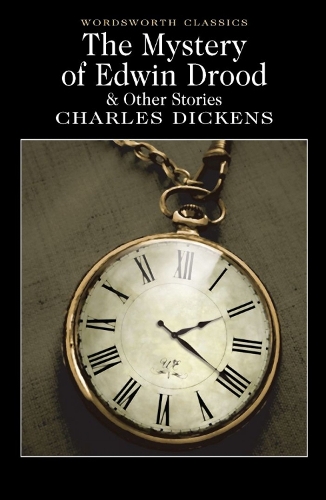
The Mystery of Edwin Drood
(Paperback, New edition)
Available Formats
Paperback
Published: 15th January 2012
Paperback, New edition
Published: 5th February 1998
Hardback
Published: 15th December 2004
Paperback
Published: 19th April 2002
Paperback
Published: 15th July 2015
Publishing Details
The Mystery of Edwin Drood
By (Author) Charles Dickens
Introduction and notes by Peter Preston
Illustrated by S.L. Fildes
Illustrated by Hablot K. Browne
Series edited by Dr Keith Carabine
Wordsworth Editions Ltd
Wordsworth Editions Ltd
5th February 1998
5th February 1998
New edition
United Kingdom
Classifications
General
Fiction
823.8
Physical Properties
Paperback
496
Width 129mm, Height 198mm, Spine 25mm
307g
Description
Dickens's final novel, left unfinished at his death, is a tale of mystery whose fast-paced action takes place in an ancient cathedral city and in some of the darkest places in nineteenth-century London. Drugs, sexual obsession, colonial adventuring and puzzles about identity are among the novel's themes. At the centre of the plot lie the baffling disappearance of Edwin Drood and the many explanations of his whereabouts. A sombre and menacing atmosphere, a fascinating range of characters and Dickens's usual superb command of language combine to make this an exciting and tantalising story. Also included in this volume are a number of unjustly neglected stories and sketches, with subjects as different as murder and guilt and childhood romance. This unusual selection illustrates Dickens's immense creativity and versatility. AUTHOR Charles John Huffam Dickens FRSA (7 February 1812 9 June 1870), pen-name "Boz", was the most popular English novelist of the Victorian era and one of the most popular of all time. He created some of literature's most memorable characters. His novels and short stories have never gone out of print. A concern with what he saw as the pressing need for social reform is a theme that runs throughout his work. Much of his work first appeared in periodicals and magazines in serialised form, a favoured way of publishing fiction at the time. Dickens, unlike others who would complete entire novels before serial publication commenced, often wrote his in parts, in the order in which they were meant to appear. The practice lent his stories a particular rhythm, punctuated by one cliff-hanger after another to keep the public eager for the next instalment.
